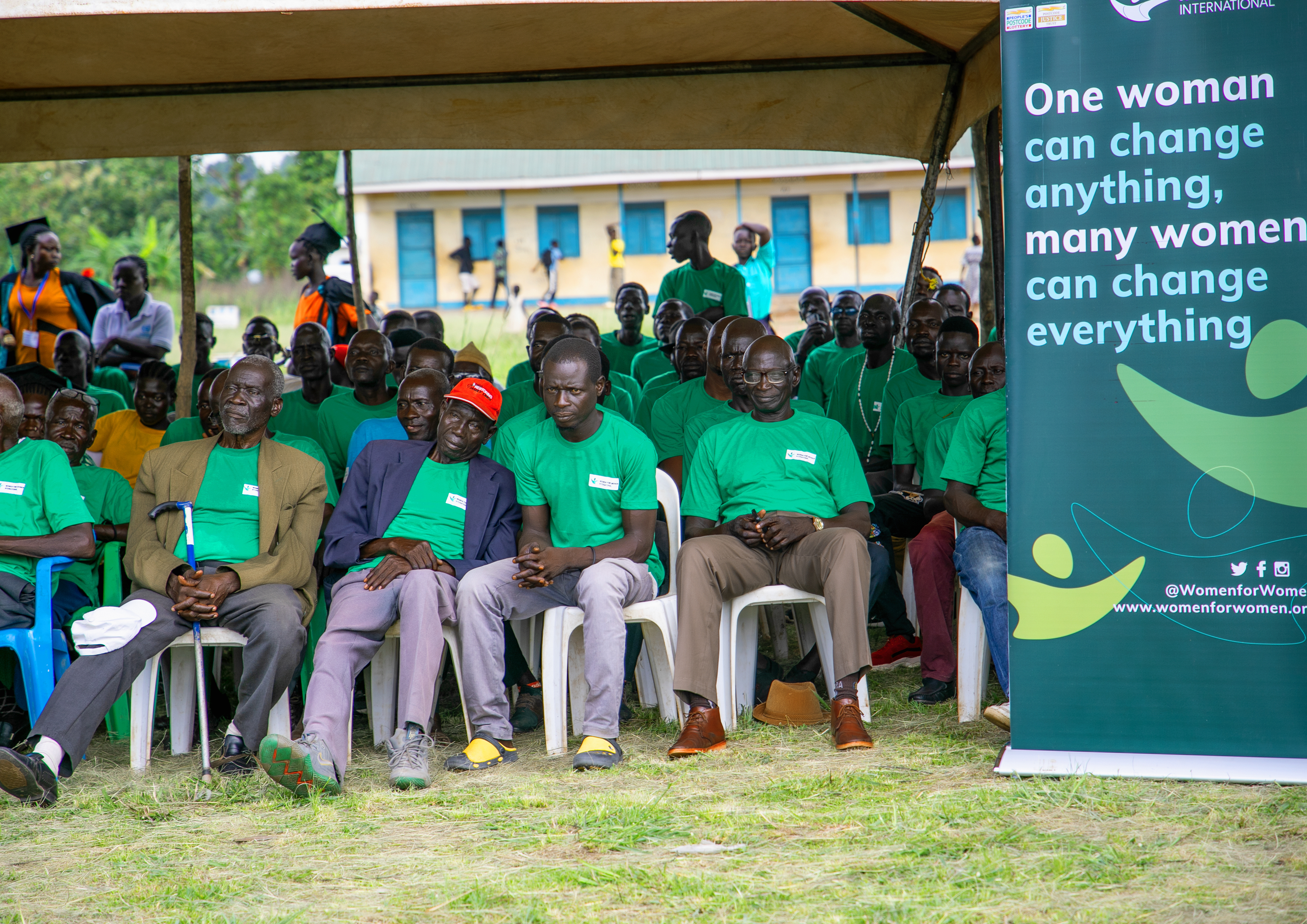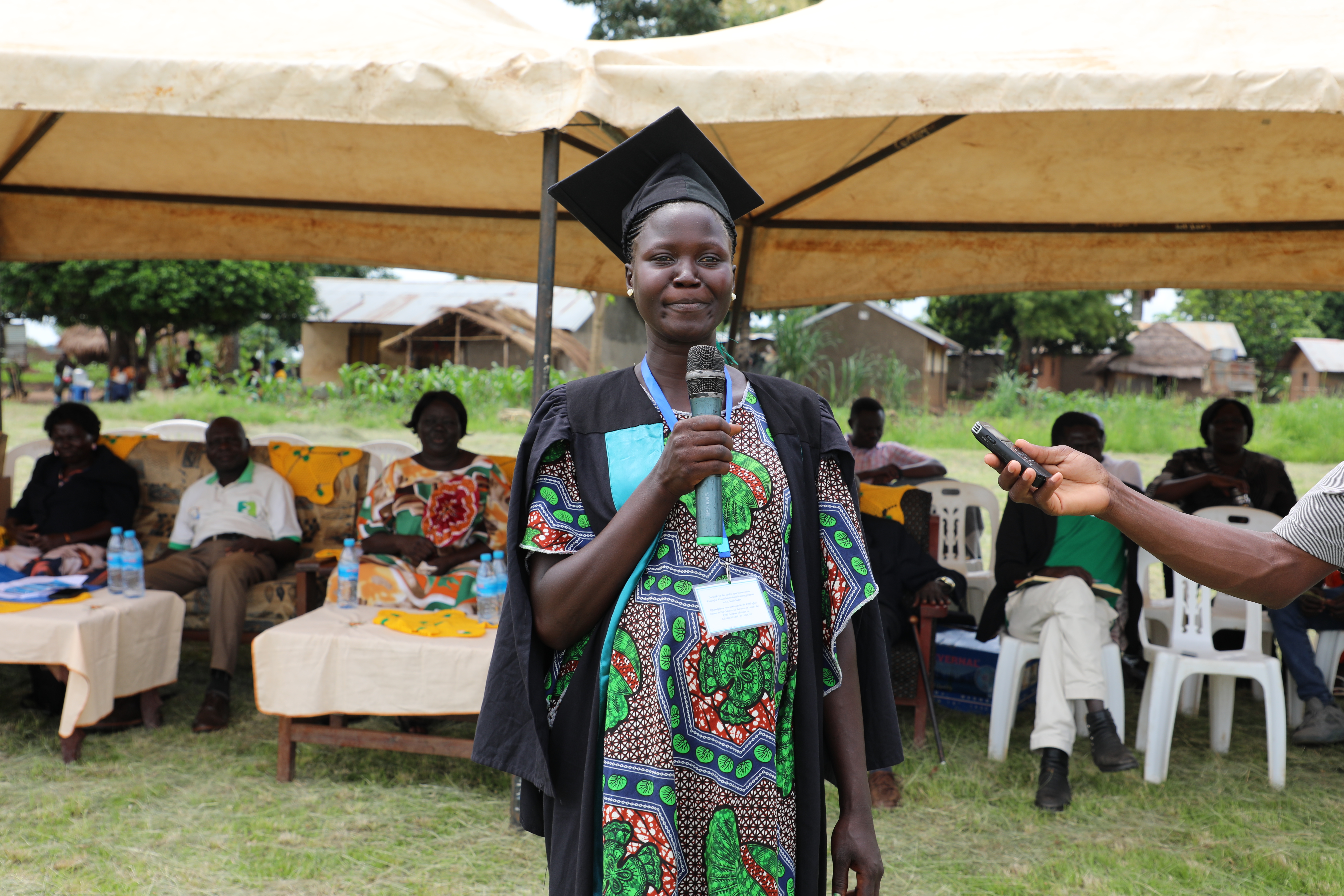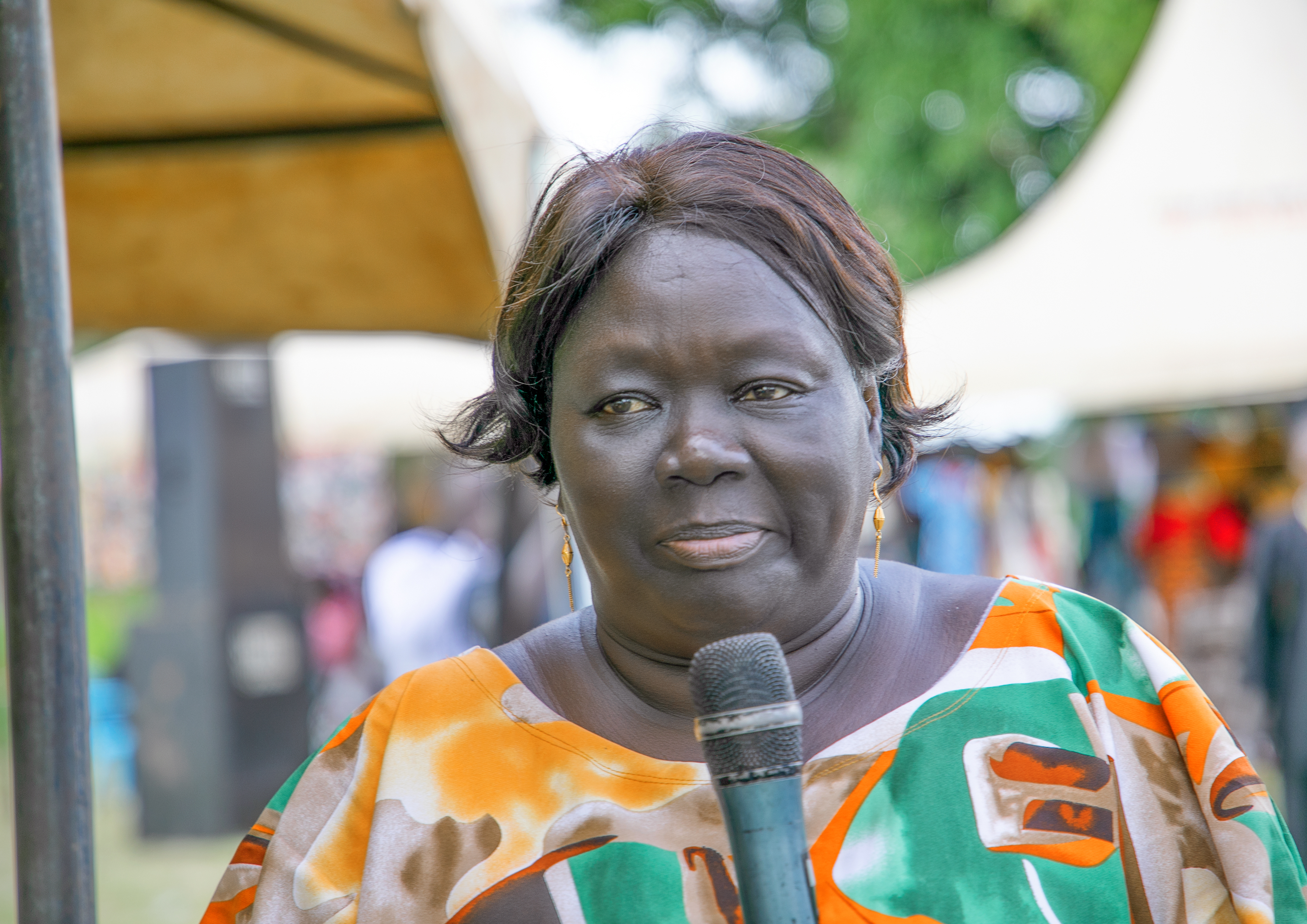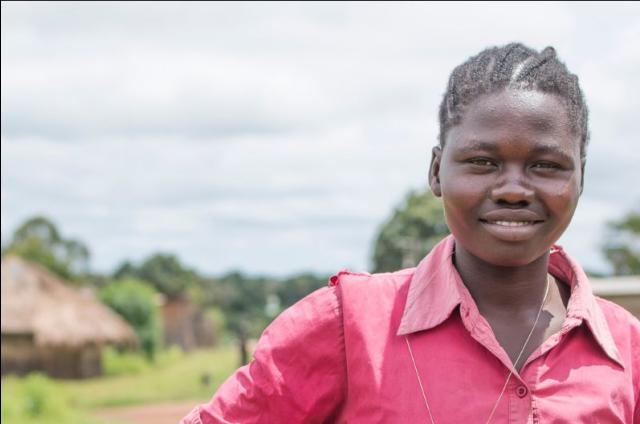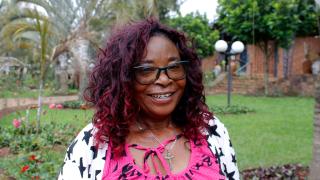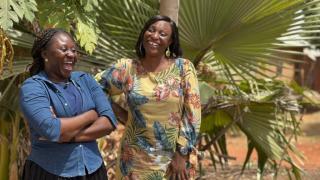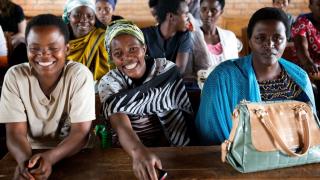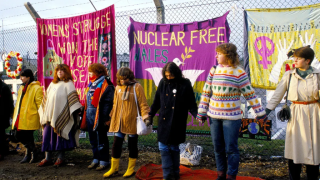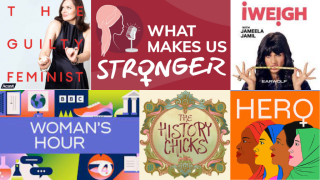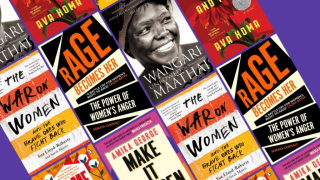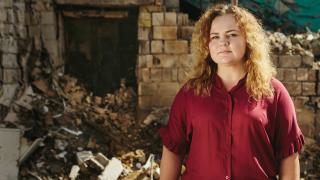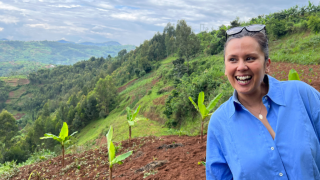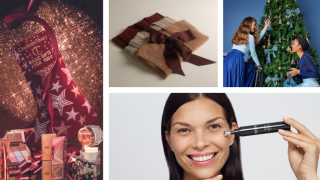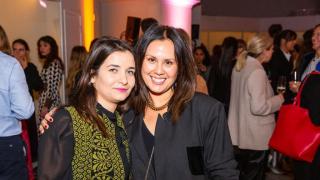Transforming Lives Together: Couples Connect in South Sudan
Transforming Lives Together: Couples Connect in South Sudan
Women for Women International is helping families transform their lives by fostering teamwork, financial independence and modern farming techniques - by piloting agricultural vocational training for couples
This innovative approach is part of our revised Men's Engagement Programme curriculum and encourages couples to work together, ensuring a better future for their families.
Here’s how the Couples Connect sessions are making a difference in Betty's life, and many others:
Betty's journey
moving forward after displacement
Displaced from her village during the 2016 crisis in South Sudan, Betty moved to the Ronyi Boma administrative division in Yei River County with her husband and their three children.
We lacked food, the children were constantly sick due to poor nutrition, and they often missed school.
To make ends meet, Betty borrowed money, sold firewood and opened a small restaurant. Farming, her true passion, was yielding little with her traditional methods due to the poor land conditions.
In March 2023, everything changed when Betty and joined our Stronger Women, Stronger Nations programme and participated in the pilot sessions for couples.
This pilot initiative aims to evaluate if couples' vocational training can lead to stronger economic outcomes for women compared to women-only vocational training. In addition to the standard agricultural training, which includes modern farming methods, the couples’ training has been adapted to:
- Educate men and women together on how to think about gender-sensitive divisions of labour
- Promote the equitable management of resources
- Foster gender awareness and an understanding how an agricultural family business operates
Each participant received a monthly stipend, a grant upon graduation to start-up their agricultural business, and farming tools and seeds.
Betty’s story is a testament to the pilot's positive outcomes for women:
With the new farming skills acquired, my husband and I embarked on joint farming.
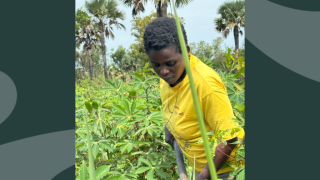
She continued, "He helped us get this large piece of land, and we applied all the new skills - from land preparation to harvesting and selling our products."
Today, my husband and I understand soil types, seasons and crop care. Our farm is thriving.
Betty's garden produce is sufficient to sustain her and her family, put her children through school and save for future needs.
She shared: "In my most recent harvest, I collected 4 basins of onions, 3 bags (50 kg) of peanuts, four basins of peas, and 4 bags of cassava. I am also now great at farm product business."
I would never have managed even half of this without the training and support from Women for Women International.
Changing Perspectives: A Husband’s Story
Engaging men in women's rights and power
For the men joining our Couples Connect vocational agricultural training, these sessions form part of a wider Men’s Engagement Programme curriculum, which is helping change patriarchal traditional norms and the perspectives of men in the community.
We spoke to Mawa, a programme participant, who joined our Couples Connect pilot sessions with his wife. He admitted that he had been a traditional, authoritarian husband, and that our programme helped him become a more supportive partner. As the training progressed, he began to appreciate his wife’s contributions and says he learnt the value of working together.
Today, my wife is the major breadwinner, and I support her in every way I can.
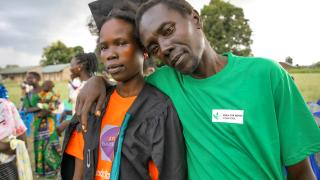
Mawa told us:
"In the programme, we learned about working together as a family, sharing responsibilities, communication in marriage, problem-solving and financial management.
Soon, I began to see reason in everything my wife was doing and I grew to appreciate her efforts in supporting me. Gradually, we started communicating again, and we would talk about business, farming and our family.
I started supporting her business, and we started working together."
Couples Connect Pilot: inital impact
more than training
The Couples Connect vocational training pilot, paired with our wider Stronger Women, Stronger Nations and Men's Engagement programming, appears to be leading to positive outcomes for couples in South Sudan.
We are in the process of conducting an internal evaluation that will be published later in the year to fully assess the success of the pilot approach. For the time being, this initiative is empowering couples to work together to:
- Enhance family unity: Couples learn to communicate effectively and share responsibilities, strengthening their family bonds.
- Promote financial independence: Participants gain financial management skills and receive grants to start or expand their businesses.
- Encourage modern farming techniques: Couples are trained in modern, practical farming methods to improve crop yields and food security.
- Foster community development: As families thrive, entire communities benefit from increased stability and economic growth.
Betty and Mawa’s stories highlight the impact of this new pilot in South Sudan.
Women for Women International is committed to engaging more couples in South Sudan and beyond. It is with thanks to our global community of supporters that this vital work is possible, helping families build a better future together.
keep reading
5 Things to Know About Sudan
subtitle:
As so many people are uprooted from their homes and forced to leave their land in Sudan, they carry a rich culture and heritage with them. While we raise awareness of the war that wages on and amplify the voices of Sudanese women suffering, we must also keep the richness of Sudan's culture and heritage alive. Here are five facts you should know.
7th April, 2024 marks 30 years since the genocide in Rwanda. Kakuze Marie Emerance, a survivor and now a trainer at our Women's Opportunity Centre shares her story, from the tragedy of the genocide to forgiveness and reconciliation.
Restoring hope, one woman at a time
subtitle:
Athiya Nemani Micah and Ruth Benjamin Raumna have been social empowerment trainers in Nigeria for over six years. Read about the transformation they've seen in women as they gain power and confidence in our programme.
By standing with women survivors of war, you are helping them realise their power and full potential. Find out more about how you can become a Stand With Her supporter and join our global community.
Shop to support women who dare
subtitle:
To mark International Women's Day 2024, we are partnering with remarkable brands that are committed to making a difference to the lives of women around the globe. Discover how you can shop with purpose and support women survivors of war this March.
The power of art for activism
subtitle:
When art an activism are brought together, they have the incredible power to overcome cultural and language barriers, allowing marginalised voices to take centre stage. Learn more about the courageous women daring to use art to challenge the status quo and drive positive change in their communities.
This Women's History Month, explore new perspectives on feminism and womanhood by delving into these podcasts. From career advice to current affairs, each episode is sure to remind you of your inner power and the change we can make if only we dare challenge the status quo.
Women's History Month Book List
subtitle:
Feed your mind this Women's History Month with books from women writers. Their powerful words and stories honour women throughout history and across the globe - their lives, experiences and courage to drive change.
Ukraine Two Years On
subtitle:
Anna Orel, Iryna Andreieva and Anna Mnishchenko from our partner organisation in Ukraine share their experience of war and supporting women, two years after the war in Ukraine started.
The highlights of my trip to Rwanda
subtitle:
In December 2023, Sara Bowcutt, Women for Women International - UK's Managing Director, went on a donor trip with our partner Allen & Overy to show them the amazing impact our Stronger Women, Stronger Nations programme can have on the lives of women survivors of war. We asked her to reflect on the trip and share three of her favourite highlights.
Giving Tuesday 2023
subtitle:
Shop with purpose this Giving Tuesday. You can stand in solidarity with women survivors of war while shopping with our partners.
Celebrating 30 years of Sisterhood
subtitle:
This month, we celebrated our 30th Anniversary with a special evening at the V&A Museum. In her speech, our Managing Director Sara Bowcutt, reflected on the power of sisterhood to transform and rebuild lives following war.

